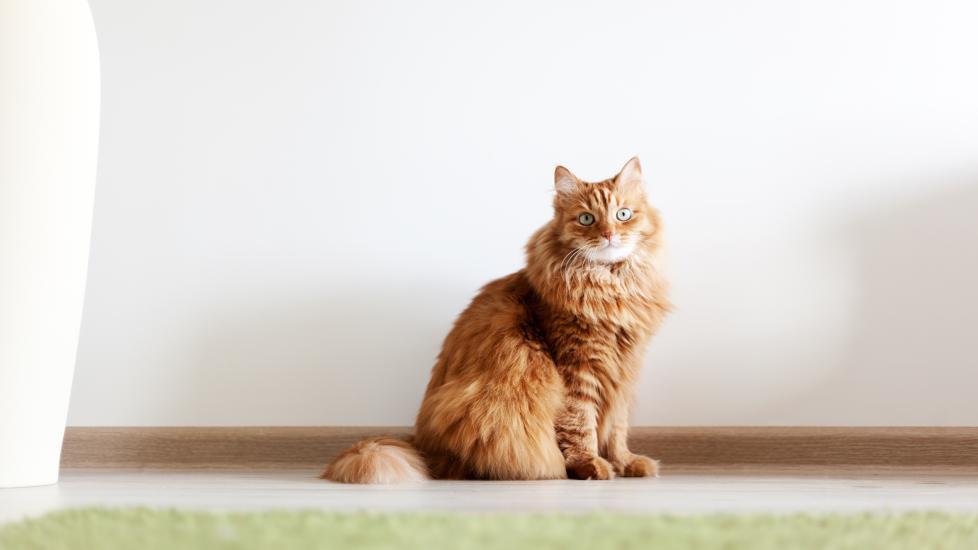Why Does My Cat Stare at Me? 6 Reasons Cats Stare and How To Respond
Adobe Stock/olezzo
You may have wondered, “why does my cat stare at me?” Staring is considered rude in the human world, but staring can convey different messages in the cat world. A staring cat can be a sign of asking for attention, seeking food, or a warning that the cat needs his space.
Here’s how to decipher what a staring cat is telling you, and how you should respond.
Why Do Cats Stare at You?
If your cat is staring at you, there might be a few reasons behind the behavior.
1. Asking for Attention
Some cats stare intently at you when they want attention. Once the cat has caught your attention, they may slow blink, meow, or even roll over or rub on nearby items. In these cases, you can approach the cat to give him attention.
2. Soliciting Play
Some cats may crouch down and stare at you with their pupils dilated and tail swishing back and forth. Then, the staring cat may sprint toward you to swat at your foot or veer off before making contact. Some cats have even been known to tackle their pet parent’s leg and bunny kick it with their hind paws.
This above cat stare is an example of a kitty that’s looking for playtime with you. If your cat stares at you like this, grab an interactive toy like a cat wand for a play session.
3. Requesting Food
Some cats have been known to stare at their pet parents when it’s feeding time. Once you make eye contact, the cat may vocalize and rub on you.
Some cats may then walk or run toward their food bowl, automatic feeder, or the location where the food is kept.
Other cats may stare intently at you while you’re eating your meal, in hopes of getting a tasty morsel of human food.
4. Signaling Fear
Sometimes a cat stares at a person, another animal, or an object out of fear. Look for other indicators of fear and anxiety in your cat’s body language, such as:
-
Dilated pupils
-
Lowered head
-
Ears pulled to the side or back
-
Body crouched down
-
Fur raised (piloerection)
The cat is staring to keep his eyes on the stimulus he’s worried about. Maybe you made a loud noise or a quick movement that startled him. Or maybe he remembers a past negative experience with a particular stimulus.
5. Showing of Affection
Cats can display affection by making eye contact with you and performing soft blinks. The very act of making eye contact and voluntarily blinking indicates the cat’s feeling for you—you make him feel safe and comfortable enough for him to close his eyes.
Some cats will perform a soft blink before approaching you for attention.
6. Sign of Aggression
When a cat gives a hard, unblinking stare paired with stiff body language and piloerection along the back and tail, he is telling the other party that if they do not back off, there will be a confrontation.
The hard, unblinking gaze is a threat to the other person or animal. The other party needs to retreat and give the cat distance; otherwise the cat may attack.
What To Do When a Cat Stares at You
How you respond to a staring cat depends on their body language. Once eye contact is made, determine what the rest of their body is telling you. Ask yourself a few questions:
-
Is the cat standing with a stiff tail and fur standing up?
-
Are the pupils dilated?
-
Where are the ears positioned?
-
Is the cat growling or hissing?
-
Is the cat blinking?
If the cat seems afraid or aggressive, avert your gaze, keep still, and perhaps take a few steps back to give the cat more space. Do not attempt to look at, talk to, or pet the cat. Once you’re at least 5 feet away from the cat, try to distract and redirect the cat to focus on another object or activity—for instance, by tossing a cat toy to the other side of the room.
If the cat is showing you affection or seeking attention or play, it’s OK to approach and interact with him. You can also make eye contact and slow-blink back to the cat.
